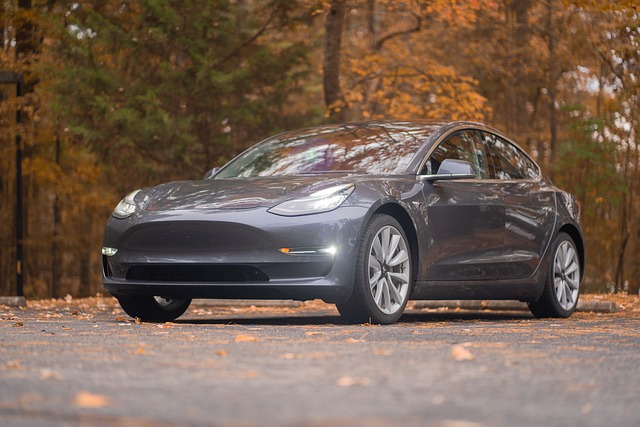Trump's Bill Would End EV Subsidies: Could This Kill Tesla?

Billionaire Elon Musk is fighting to make sure federal tax incentives for electric vehicles (EVs) -- a key subsidy that makes buying EVs more affordable -- remain in place. President Donald Trump's new bill seeks to eliminate these tax incentives, which would otherwise be in place until 2032.
Musk's company Tesla (NASDAQ: TSLA) has already seen sales struggle to grow across many key geographies. Deliveries last quarter fell by 32% quarter over quarter, and by 13% year over year. Could the elimination of EV tax credits be a lethal blow to the struggling automaker? You might be surprised by the answer.
Where to invest $1,000 right now? Our analyst team just revealed what they believe are the 10 best stocks to buy right now. Learn More »
Tesla has a massive capital advantage
When it comes to potential regulation "killing" an operating business like Tesla, the first thing investors must consider is the effect on sales growth. Already, demand growth has been stagnating for Tesla. And while the company has teased new potential revenue sources like its robotaxi venture, there aren't many high-visibility milestones ahead that will meaningfully boost revenue over the next year or two. Analysts expect the company to refresh its existing lineup, but details are scarce on releasing any brand new models in 2025 or 2026. Even if a new model is released, it's unlikely that production will scale meaningfully over the next 12 to 24 months.
Where does this leave Tesla over the near term? In the same position it is in today, attempting to stoke demand for an increasingly stale lineup. Making the company's vehicles $4,000 to $7,500 more expensive -- the range of Federal incentives that Trump is proposing to eliminate -- could ultimately accelerate sales declines for Tesla. Any potential demand boost from releasing a more affordable Model Y or Model 3, meanwhile, could be completely offset by eliminated tax credits, resulting in minimal net savings for customers. In return, Tesla may need to compress its profit margins in order to keep demand growth on track.
Fortunately, Tesla has the capital to withstand a multiyear stagnation in sales growth. It has $16 billion in cash and equivalents on the books, more than every other competitor. Its profit margins are also positive -- a rarity in the EV world -- meaning it can afford to cut profits a bit without going into the red. Though it should be mentioned that Tesla has also relied on selling automotive regulator credits -- earned by selling carbon-free vehicles -- to maintain profitability. The company earned $595 million last quarter by selling these credits versus a net income of $409 million. But most of this "free" income from selling credits comes from states like California and New York, as well as incentive programs in the E.U., making them unlikely to be cut should U.S. federal incentives change.
Still, Tesla's biggest advantage is its $1 trillion market cap. Tesla could easily double the cash levels on its balance sheet while diluting shareholders by just 1% to 2%. This makes it very unlikely for the company to go under anytime soon. In fact, the elimination of EV tax credits could be a secret win for Tesla.

Image source: Getty Images.
Eliminating EV tax credits could actually help Tesla
Many investors might be surprised to learn that ExxonMobil wishes for a carbon tax to be implemented. A carbon tax would make its output more expensive to buyers, potentially limiting demand. But if production costs rise, it's possible that many small competitors can't compete, leaving more of the market for well-capitalized behemoths like Exxon.
The same may prove true for Tesla. Most of its EV competition comes from unprofitable companies with minimal room for error like Rivian and Lucid Group. These EV makers are roughly 99% smaller than Tesla, with limited ability to tap the market for more capital at will. The elimination of EV tax credits would hurt them more than Tesla, potentially leaving more long-term market share for Musk and his investors.
Of course, the immediate effect will be negative for Tesla and the rest of the industry. But it should be stressed that bills are not laws. The EV tax credit may end up in place until 2032 like previously planned. But the elimination of these subsidies certainly won't "kill" Tesla. In fact, there's an argument that it could be a long-term advantage due to lessened competition.
Don’t miss this second chance at a potentially lucrative opportunity
Ever feel like you missed the boat in buying the most successful stocks? Then you’ll want to hear this.
On rare occasions, our expert team of analysts issues a “Double Down” stock recommendation for companies that they think are about to pop. If you’re worried you’ve already missed your chance to invest, now is the best time to buy before it’s too late. And the numbers speak for themselves:
- Nvidia: if you invested $1,000 when we doubled down in 2009, you’d have $368,190!*
- Apple: if you invested $1,000 when we doubled down in 2008, you’d have $37,294!*
- Netflix: if you invested $1,000 when we doubled down in 2004, you’d have $653,702!*
Right now, we’re issuing “Double Down” alerts for three incredible companies, available when you join Stock Advisor, and there may not be another chance like this anytime soon.
*Stock Advisor returns as of June 9, 2025
Ryan Vanzo has no position in any of the stocks mentioned. The Motley Fool has positions in and recommends Tesla. The Motley Fool has a disclosure policy.







